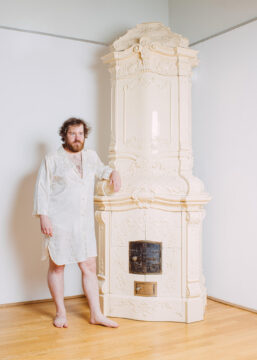MATTHIAS GÖTTFERT | INTERNATIONAL RESIDENCE UPPER AUSTRIA

INTERNATIONAL RESIDENCE UPPER AUSTRIA: MATTHIAS GÖTTFERT

Matthias Göttfert will use his time in residency at Sporobole to further develop one of his current artistic projects, and to assemble a concrete plan for the work’s construction using 3D models. HIs current work is titled “object no. 48 The Blind Spot”. This work explores the relationship between the digital and the real world and poses the following questions: How is private space experienced, and who decides what is public and what is not? What are the moral questions behind decisions to render matters public, and who makes these decisions? Is this still a question for our society to answer, or have we left these issues to private actors?
Göttfert’s aim is to create a blind spot on Google Maps (and on other maps available on the internet) based on satellite imagery. To achieve this, he will use tropes related to homophobia and prudishness that are transferred from the real world, to the digital world. The fact that technology companies that run such digitisation programs are focused on maximizing profits, resulting in the deletion or revision of anything that might displease potential advertisers or investors, is particularly useful for Göttfert’s work. Hence, he will make an obscene drawing of two men copulating that is large enough to be visible on satellite images used for such maps. This is achieved by altering the terrain or building a structure so that the drawing can be seen from a bird’s eye view. This work is not a statement against digitalisation; rather, it is an invitation to reflect on the underlying mechanisms of digitalisation. Further, it is also about how, despite the outward claim of objectivity, gender inequality and discrimination against marginalized groups are transported into digital space. Göttfert hopes to show that very specific values shape the digital space, however, these are not easily exposed and rendered available for discussion.
The image of gay pornography may seem like an extreme example, but it guarantees the relevance of the artwork for decades to come and ensures that the issue is more easily taken up in public discourse. The ensuing artwork, therefore, will create a place that exists in the real world but is denied access to digital space. Through this special position, the artwork will open up a wide field of negotiation. During the residency and its associated workshops, Göttfert plans to further develop this work and make plans for its full-scale realization.
